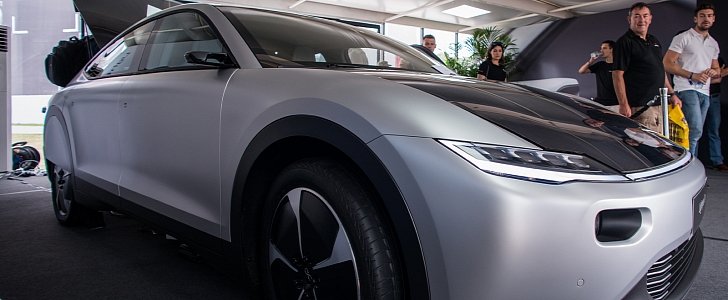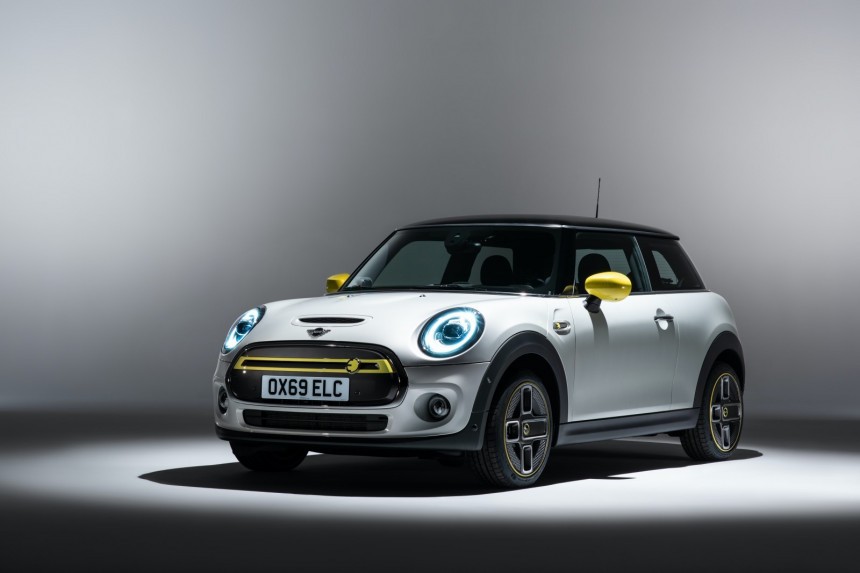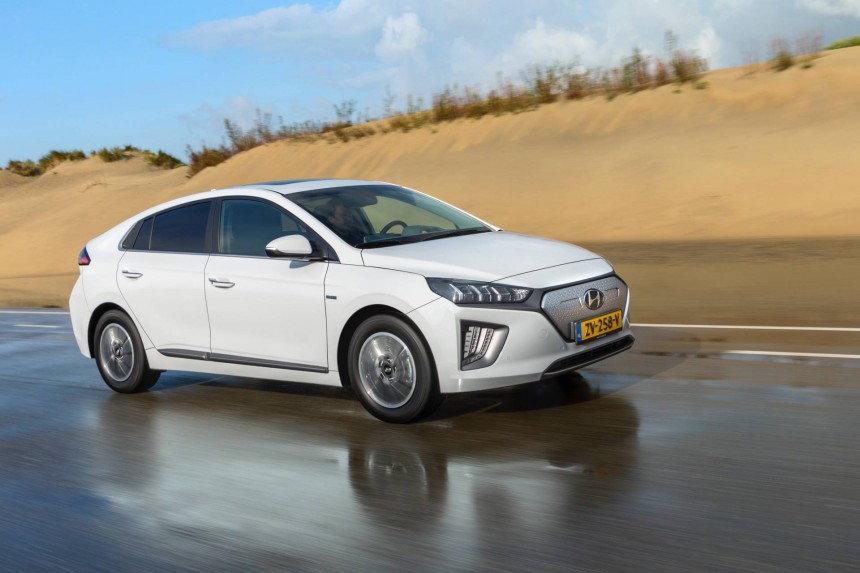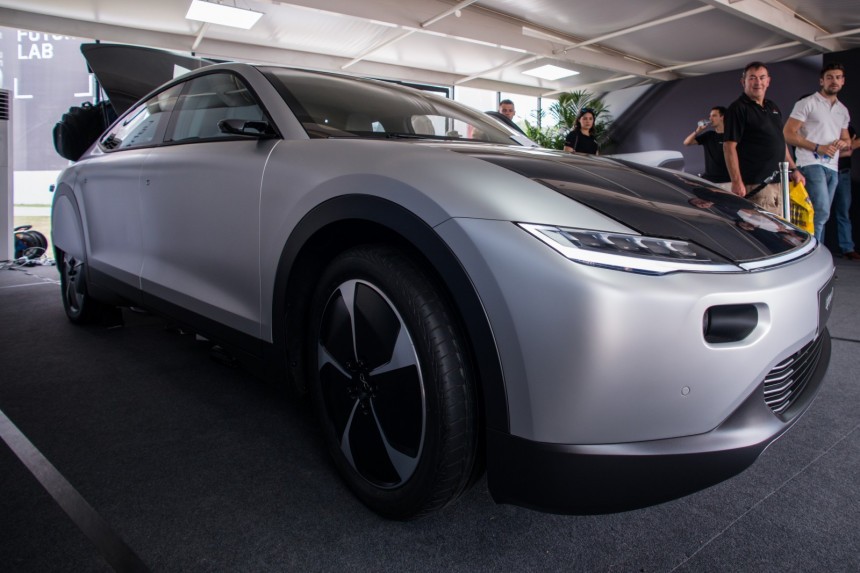When talking about EVs, the main point of interest is the size of their battery packs or how far they can take the vehicle on a single charge. But if you look at these vehicles more closely, you’ll see that some of them use their electricity considerably more efficiently than others.
In fact, some of the highest range EVs on the market today are not really that efficient in terms of how many kWhs they use over a set distance, say 100 km (62 miles). These long-range electric cars achieve their high autonomy by having really big battery packs, not necessarily because they use very little electricity.
But this piece doesn’t focus on those vehicles with the longest range. What we’ll be looking at here are those EVs that use the least energy to move themselves, the ones that with comparatively small packs achieve good range; the vehicles mentioned below appear in ascending efficiency order.
MINI’s first proper EV, the Cooper SE, will debut next year with a 32.6 kWh battery pack and a claimed range, calculated according to WLTP guidelines, of 232 km. This means it will use around 15.5 kWh/100 km and it will become one of the most frugal EVs on the market.
The Hyundai Kona Electric, even though it’s a crossover, is one of the most efficient EVs you can buy right now. It has two available packs: one with 39 kWh (claimed range 289 km) and another with 64 kWh (claimed range 395 km). With the latter equipped, the Kona Electric averages 15 kWh/100 km, while the bigger pack increases that to 15.4 kWh/100 km.
You’d expect small, light city cars with electric powertrains to be very efficient, and they are. Take the VW group trio comprised of the Skoda CITIGOe iV, the Seat Mii Electric and the VW e-Up!. They all use a claimed 14.4 kWh/100 km, which is pretty good by modern EV standards, and with a 36.8 kWh pack, they have a claimed range of about 260 km, according to the latest WLTP test cycle.
Another highly efficient EV is the Tesla Model 3, in Standard Range Plus trim, with the 55 kWh battery pack. It uses around 14.3 kWh/100 km and it has a WLTP-rated range of 409 km. By contrast, the Model 3 Long Range AWD uses 16 kWh/100 km, but thanks to the larger 75 kWh power storage unit, the WLTP test cycle rates it at 560 km on a single charge.
An even better efficiency rating than the Model 3 is provided by the Hyundai Ioniq Electric, probably the best car currently on sale for making the most of available stored electricity, according to the official data. It needs just 13.8 kWh/100km, so even though its 38.3 kWh battery is by no means huge, it should still be able to travel for up to 311 km (based on the WLTP cycle) on one charge - kudos to Hyundai for this achievement.
But even though we’ve found what is probably the most efficient EV currently out, there is still a lot of room for improvement. You may have heard of the Lightyear One, a vehicle that’s set to arrive in 2020 and one that proves just how much more efficient EVs can become.
It was created by a team that previously built highly successful solar cars (for solar car races) and it has applied a lot of that know-how into the Lightyear One. Two principles guided its creation and none of them is revolutionary, but it just goes to show how important they are: making the car light and making it as aerodynamic as possible.
Its makers say it has a range of 725 km, even though its power storage solution is not huge: 60 kWh. Based on WLTP ratings, it uses just 8.3 kWh/100 km which seems bonkers when you compare it to, say, a Tesla Model S Performance whose 100 kWh pack only gets it to 593 km, roughly 18 kWh/100 km.
The Lightyear One is scheduled to debut in 2020, but even if it’s set to become the single most efficient EV on the market, it will have one quite glaring drawback - its price, since it’s expected to cost from €149,990.
But this piece doesn’t focus on those vehicles with the longest range. What we’ll be looking at here are those EVs that use the least energy to move themselves, the ones that with comparatively small packs achieve good range; the vehicles mentioned below appear in ascending efficiency order.
MINI’s first proper EV, the Cooper SE, will debut next year with a 32.6 kWh battery pack and a claimed range, calculated according to WLTP guidelines, of 232 km. This means it will use around 15.5 kWh/100 km and it will become one of the most frugal EVs on the market.
You’d expect small, light city cars with electric powertrains to be very efficient, and they are. Take the VW group trio comprised of the Skoda CITIGOe iV, the Seat Mii Electric and the VW e-Up!. They all use a claimed 14.4 kWh/100 km, which is pretty good by modern EV standards, and with a 36.8 kWh pack, they have a claimed range of about 260 km, according to the latest WLTP test cycle.
Another highly efficient EV is the Tesla Model 3, in Standard Range Plus trim, with the 55 kWh battery pack. It uses around 14.3 kWh/100 km and it has a WLTP-rated range of 409 km. By contrast, the Model 3 Long Range AWD uses 16 kWh/100 km, but thanks to the larger 75 kWh power storage unit, the WLTP test cycle rates it at 560 km on a single charge.
But even though we’ve found what is probably the most efficient EV currently out, there is still a lot of room for improvement. You may have heard of the Lightyear One, a vehicle that’s set to arrive in 2020 and one that proves just how much more efficient EVs can become.
It was created by a team that previously built highly successful solar cars (for solar car races) and it has applied a lot of that know-how into the Lightyear One. Two principles guided its creation and none of them is revolutionary, but it just goes to show how important they are: making the car light and making it as aerodynamic as possible.
The Lightyear One is scheduled to debut in 2020, but even if it’s set to become the single most efficient EV on the market, it will have one quite glaring drawback - its price, since it’s expected to cost from €149,990.













